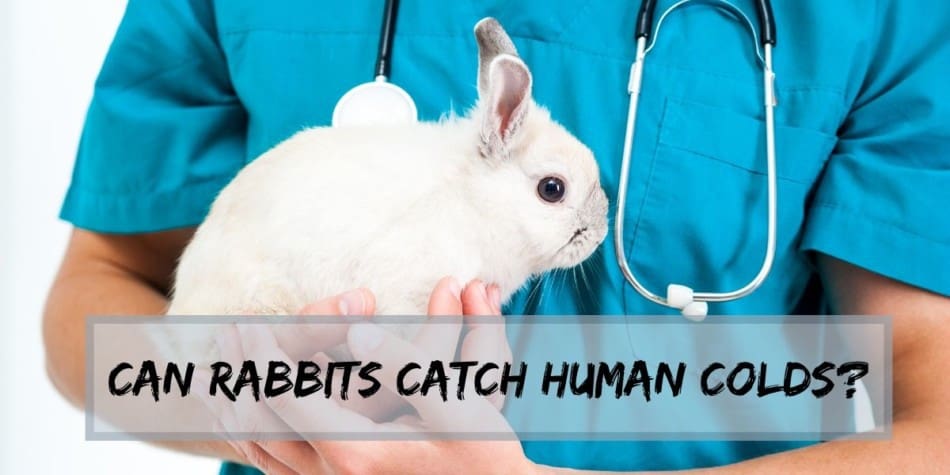Viruses cause colds. Scientists have recorded about 200 different types of viruses that can cause colds among people. Most of these colds are caused by rhinoviruses, which are only human contracted.
This means that you cannot pass a cold to your rabbit.
Can rabbits catch human colds? Well, the answer to this question is “no”. Likewise, one may wonder “Can rabbits catch colds at all?”. And the answer to this question would be “yes”. Rabbits can suffer from a form of cold that causes them sneezing, a runny nose, or runny eyes.
However, this cold is unique to them as they cannot get a cold infection from humans.
However, a rabbit can carry the virus that causes illness in humans. You can also carry microorganisms in the form of bacteria on your hands that cause illness to your rabbit.
This is one of the reasons why it is so important to wash your hands after visiting a pet store or animal shelter; after playing with your pet and before attending to your pet.
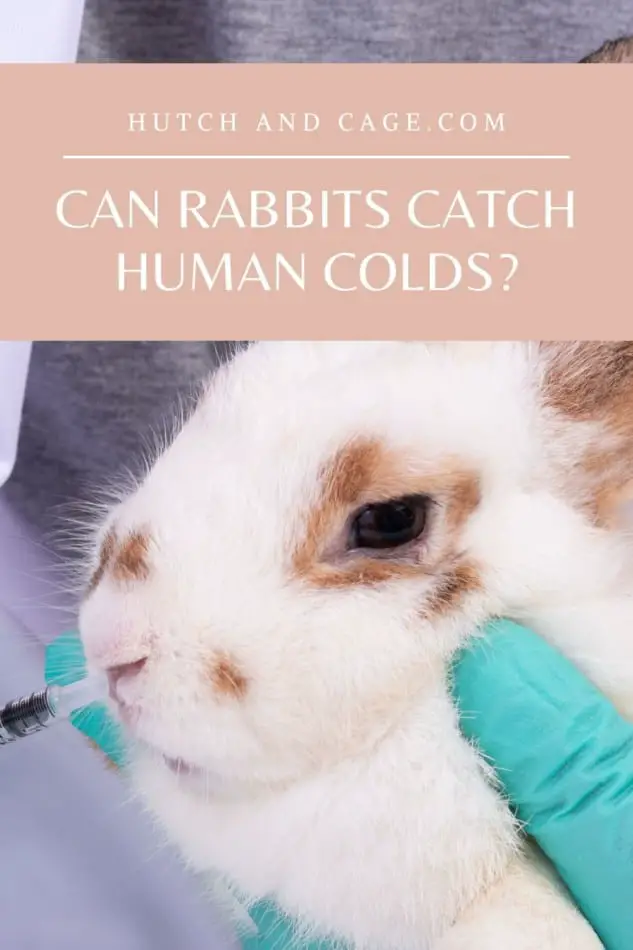
Table of Contents
Cause of colds in rabbits
Rabbits catch colds. The common cause of a runny nose is an infection of the respiratory system. Rabbits get an infection in the upper respiratory tract that are called “snuffles”.
A variety of bacteria can cause snuffles in rabbits, which is why the best thing to do is to talk to your veterinarian on the best antibiotics you could use to treat your pet.
Respiratory Tract Infections
Your rabbit can also be affected by lower respiratory tract infections, called pneumonia. The infections are often associated with breathing difficulties and require immediate veterinary attention.
This infection in the lower respiratory system is very contagious and can also affect the eyes and ears, among other organs. The infection can be cured if diagnosed early, but it can become chronic or fatal if left untreated.
If your rabbit sneezes or shows signs of nasal and ocular discharge, especially if the discharge is ovarian and thickened, your veterinarian should see it.
The veterinarian will take a sample of nasal secretions that are sent to the laboratory to test the culture and the allergy. Once the veterinarian gets the test results, he can prescribe specific antibiotics that should be safer and more effective against rabbit infections.
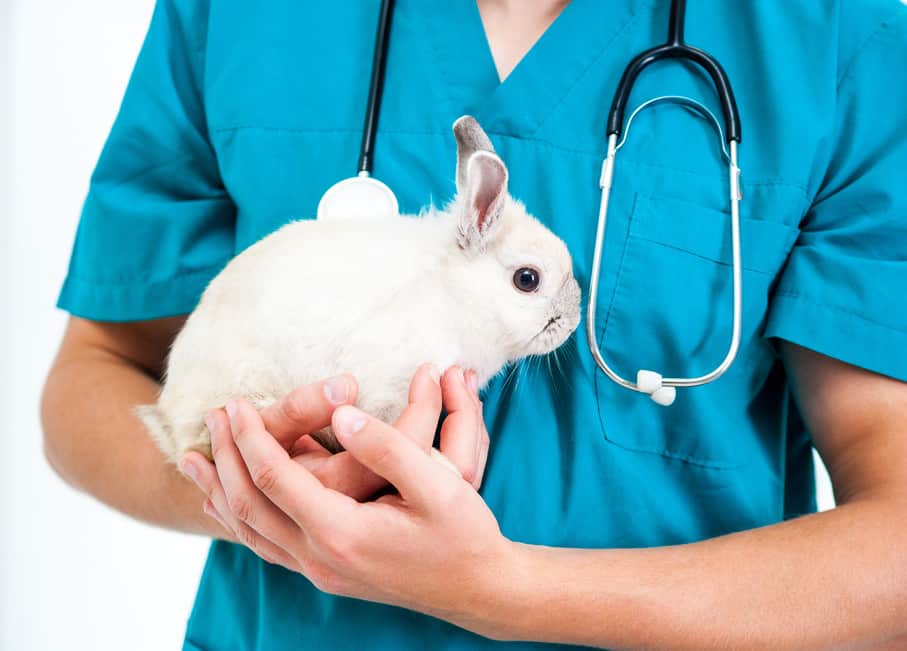
Eye Infections
Eye problems, breathing difficulties or chronic sneezing can also indicate allergies, tear failure, or other problems. As such, they are not conclusive indicators of a cold in your rabbit.
It is therefore important that you consult your veterinarian. If you cannot contact the veterinarian, in the meantime, you can wipe the eyes and nose of your rabbit with sterile saline and use artificial tears to keep their eyes more comfortable.
Use warm compresses to remove the scales around the eyes of the rabbit and ensure they remain clean.
Watch your rabbit’s behavior as any changes may indicate illness. If they’re usually happy to see you when you get home, but they act lazy or don’t behave normally, then you should also see a veterinarian as soon as you can.
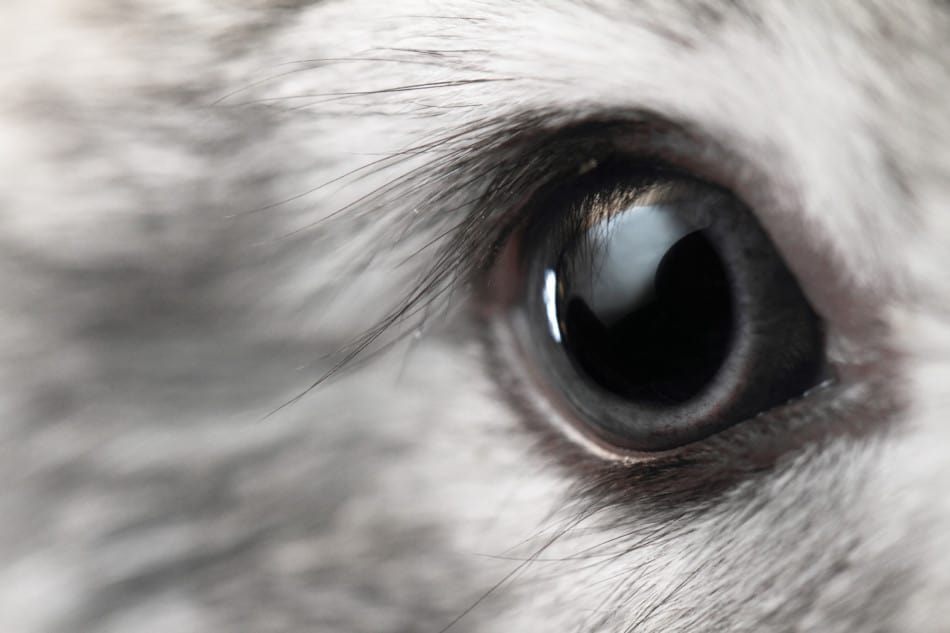
The ability to observe your rabbit early can save you a lot of money from treatments, veterinary bills and ensure good health of your pets.
Monitor your beloved rabbit’s behavior, activity level, and litter box every day. Each rabbit is different and knowing your rabbit’s natural behavior is extremely essential.
The causal bacterial of snuffles
In many cases, the cause of snuffles is a bacterial strain called Pasteurella multocida that causes disease by the name albuminuria. The bacterium has undergone extensive study because of its spread and its ability to spread quickly by the local rabbit population.
Although snuffle infections can be dangerous, it mainly depends on the health of your rabbit and the strain of bacteria that caused the disease. Therefore, sneezing from the rabbit that you hear can be somewhat harmless or more dangerous.
Sometimes the infection can be very mild and spread by itself. However, it is always wise to seek the help of a veterinarian so that proper treatment can be provided as quickly as possible.
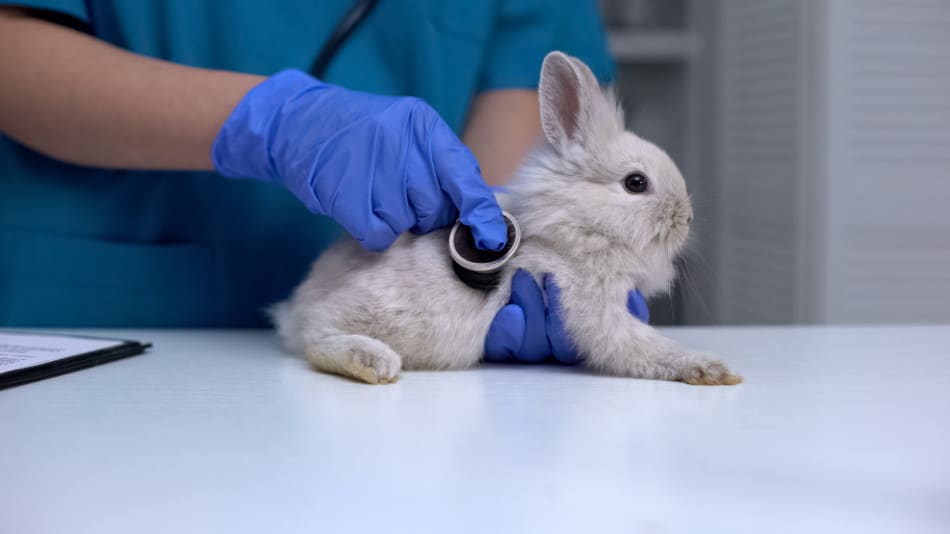
Symptoms of snuffles
Since snuffling is a disease of the upper respiratory tract, you can expect some shortness of breath. You can also hear a rasping or a snuffling sound from your rabbit as it breathes.
This noise is caused by inflammation of the nasal passages and an accumulation of mucus in the nose. Of course, this type of buildup can make breathing difficult. You may also notice that your rabbit is sneezing.
Initially, you will see a watery mucus from the nose. It will then become opaque, thick, and green. Since your rabbit uses its paws for cleaning itself, bacteria coming from the nasal passage can spread easily to the ears and eyes.
A runny nose can be of great concern. If the infection spreads to the eyes, you will see inflamed pink eyes that can be flooded with water. Ear infections can cause balance problems, and the rabbit can shake its head and itch both ears.
Snuffles can be dangerous. You should understand that snuffles can develop into pneumonia. Critical infections of the blood and abscesses can also form. Therefore, be sure to plan on seeing your veterinarian as soon as possible when you see the first signs of the disease.
Since the infection begins in the lungs, you will first notice the sound of the buildup of mucus. The veterinarian will likely complete the exam and clear the nose so that it can be tested for Gram-negative bacteria.
Treating snuffles in rabbits
No one wants to see a pet rabbit with a runny nose or sneezing, which are the two main symptoms of a cold in rabbits.
When one notices these symptoms, the best thing to do is to take the rabbits to a veterinarian who can do a test on the nasal secretions to determine the type of bacteria that is causing the problem. Your veterinarian may prescribe antibiotics to treat the infection.
This rabbit disease can worsen if untreated. The bacteria can cause an infection in the lower respiratory tract, which can make it difficult for your rabbit to breathe.
If bacteria get into the rabbit’s bloodstream, they can also cause a life-threatening infection. Don’t assume that a runny-nosed rabbit is as harmless as a human cold.
Helping your rabbit breathe easier
Rabbits are not like humans. They are unable to breathe effectively through the mouth when the nasal passages are congested. Part of caring for rabbits involves helping them breathe easily when they have such a condition.
Firstly, you can gently absorb the congestion from the rabbit’s nose with an ear syringe designed to remove buildup from inside the baby’s ears. Another option is to give the rabbit small doses of human antihistamines that reduce swelling and infections that make it difficult to breathe.
Be sure to talk to your veterinarian about the appropriate dose for your rabbit. Both methods can help your pet feel much better and will help reduce the rabbit’s runny issue.
Antibiotics for snuffles in rabbits
Since snuffles can spread, and the infection is bacterial, antibiotics are usually used to treat the disease. Again, it is up to the veterinarian based on the results of the examination and the lab results.
While humans can usually take antibiotics for treating infections for a relatively short period, rabbits require much longer treatments to treat conditions such as snuffle. Oral antibiotic treatment will last approximately two to four weeks.
You may know that the health of your rabbit’s digestive system is highly dependent on the colonies of beneficial bacteria that live in the gut. Unfortunately, these antibiotics kill useful bacteria as well as harmful bacteria.
Talk to your veterinarian about providing bacterial supplements to provide the necessary microorganisms. Besides, you may need to provide additional liquid. You might also consider following a special easy-to-digest diet for your rabbit.
Investing in the right diet for a short time can be beneficial for longterm health.
In some cases, the infection will not go away without additional long-term treatment. If you notice that the rabbit is still sick after several weeks of medication, it is time to make another appointment for the rabbit.
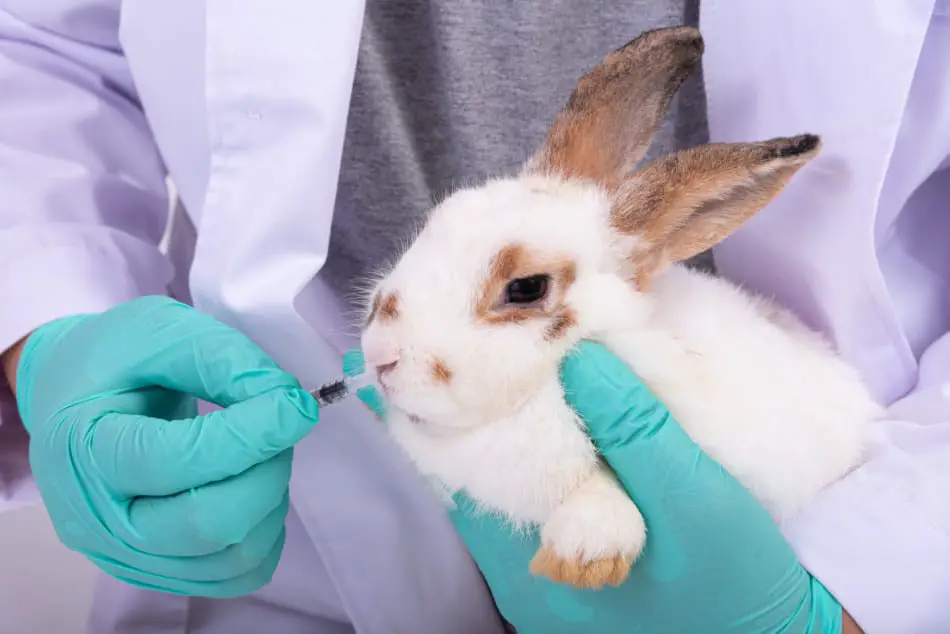
Preventing snuffles in rabbits
While not a quick fix, veterinarians note that good ventilation can be the key to preventing snuffles. This could be in the form of fresh, natural air, or an artificial ventilation system.
It is important, in cases where many rabbits live together, to separate the rabbits with wax infections from the others. It can also be helpful to provide fresh vegetables and hay to infected rabbits.
Providing the right diet for your pet rabbit is always a good idea but neither more so when they are sick.
Read our article on the correct diet for your pet rabbit here!
How to tell if a rabbit is sick?
If you notice changes in your rabbit, they might be sick. Any appetite changes, changes to their bathroom habits, their fur, or even their posture could be signs of sickness.
Can rabbits take human medication for colds?
If your rabbit’s nose is running, their eyes are puffy, and you aren’t able to bring your rabbit to a vet, you could give them a small dose of child Benadryl. You should consult with your vet before giving them any medicine that isn’t prescribed to them.
Does my rabbit have allergies?
If your rabbit has puffy red eyes or a runny nose, they might have allergies . You can find out from a vet whether it is allergies or illness, and the vet will be able to provide you with a prescription for antihistamines for your bunny.
Why does my rabbit have a runny nose?
A runny nose could be a sign of a respiratory infection or allergies. The best course of action is to take your rabbit to the vet for a proper diagnosis.
Conclusion: Can rabbits catch human colds?
Can rabbits catch colds? The answer is yes but claiming that rabbits catch human colds is untrue.
You know how unhappy it is to be sick, and your rabbit will feel the same when he is unwell. Although you can wait for a cold and let the symptoms go away on its own, you should not assume the same for rabbits because infections can spread to other organs.
If the rabbit appears to be in distress, be sure to consult a veterinarian. Early treatment will help your rabbit to feel better and jump happily again as quickly as possible.

